- Brian

FiberMall
Answered on 6:19 am
Active Copper Breakout Cables are cables that connect a single high-speed port to multiple lower-speed ports. They are typically used to connect switches, servers, and storage devices in data centers. They use copper wires to transmit electrical signals and have active components in the connectors that boost the signal quality and extend the reach. They can support data rates from 10G to 400G per lane.
The QSFP end of the active breakout cable includes a gearbox chip which converts 2x 50G PAM-4 electrical signals from the 400G port (a 100G-2 interface) into 4x 25G NRZ electrical signals (a 100G-4 interface). The vast majority of the installed base of 100G QSFP switches / routers / NICs use 100G-4 QSFP ports (where the QSFP port has an electrical interface consisting of 4x 25G NRZ electrical signals).
The Arista active copper breakout cables offer a cost-effective way to breakout a 400G port into 4x100G and connect to an installed base of 100G QSFP ports.

People Also Ask
Analysis of Core Port Ratios in Intelligent Computing Center Network Design
Two Key Design Principles for GPU Cluster Networks The Definition of Core Ports In a typical Spine-Leaf (CLOS) network architecture for intelligent computing centers: Consistent Access-to-Core Port Ratios The number and bandwidth of “downlink ports” (used to connect servers) on a Leaf switch should maintain a fixed and sufficient ratio—typically 1:1
NVIDIA Spectrum-X Network Platform Architecture Whitepaper
Improving AI Performance and Efficiency AI workload demands are growing at an unprecedented rate, and the adoption of generative AI is skyrocketing. Every year, new AI factories are springing up. These facilities, dedicated to the development and operation of artificial intelligence technologies, are increasingly expanding into the domains of Cloud
NVIDIA GB200 NVL72: Defining the New Benchmark for Rack-Scale AI Computing
The explosive growth of Large Language Models (LLM) and Mixture-of-Experts (MoE) architectures is fundamentally reshaping the underlying logic of computing infrastructure. As model parameters cross the trillion mark, traditional cluster architectures—centered on standalone servers connected by standard networking—are hitting physical and economic ceilings. In this context, NVIDIA’s GB200 NVL72 is
In-Depth Analysis Report on 800G Switches: Architectural Evolution, Market Landscape, and Future Outlook
Introduction: Reconstructing Network Infrastructure in the AI Era Paradigm Shift from Cloud Computing to AI Factories Global data center networks are undergoing the most profound transformation in the past decade. Previously, network architectures were primarily designed around cloud computing and internet application traffic patterns, dominated by “north-south” client-server models. However,
Global 400G Ethernet Switch Market and Technical Architecture In-depth Research Report: AI-Driven Network Restructuring and Ecosystem Evolution
Executive Summary Driven by the explosive growth of the digital economy and Artificial Intelligence (AI) technologies, global data center network infrastructure is at a critical historical node of migration from 100G to 400G/800G. As Large Language Model (LLM) parameters break through the trillion level and demands for High-Performance Computing (HPC)
Related Articles
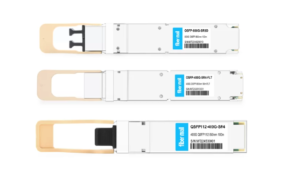
800G SR8 and 400G SR4 Optical Transceiver Modules Compatibility and Interconnection Test Report
Version Change Log Writer V0 Sample Test Cassie Test Purpose Test Objects:800G OSFP SR8/400G OSFP SR4/400G Q112 SR4. By conducting corresponding tests, the test parameters meet the relevant industry standards, and the test modules can be normally used for Nvidia (Mellanox) MQM9790 switch, Nvidia (Mellanox) ConnectX-7 network card and Nvidia (Mellanox) BlueField-3, laying a foundation for
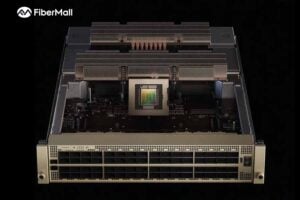
Analysis of Core Port Ratios in Intelligent Computing Center Network Design
Two Key Design Principles for GPU Cluster Networks The Definition of Core Ports In a typical Spine-Leaf (CLOS) network architecture for intelligent computing centers: Consistent Access-to-Core Port Ratios The number and bandwidth of “downlink ports” (used to connect servers) on a Leaf switch should maintain a fixed and sufficient ratio—typically 1:1
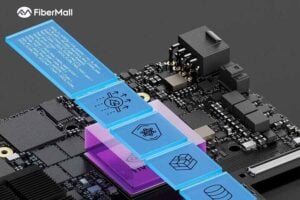
NVIDIA Spectrum-X Network Platform Architecture Whitepaper
Improving AI Performance and Efficiency AI workload demands are growing at an unprecedented rate, and the adoption of generative AI is skyrocketing. Every year, new AI factories are springing up. These facilities, dedicated to the development and operation of artificial intelligence technologies, are increasingly expanding into the domains of Cloud
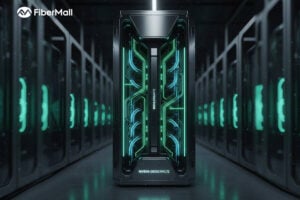
NVIDIA GB200 NVL72: Defining the New Benchmark for Rack-Scale AI Computing
The explosive growth of Large Language Models (LLM) and Mixture-of-Experts (MoE) architectures is fundamentally reshaping the underlying logic of computing infrastructure. As model parameters cross the trillion mark, traditional cluster architectures—centered on standalone servers connected by standard networking—are hitting physical and economic ceilings. In this context, NVIDIA’s GB200 NVL72 is

In-Depth Analysis Report on 800G Switches: Architectural Evolution, Market Landscape, and Future Outlook
Introduction: Reconstructing Network Infrastructure in the AI Era Paradigm Shift from Cloud Computing to AI Factories Global data center networks are undergoing the most profound transformation in the past decade. Previously, network architectures were primarily designed around cloud computing and internet application traffic patterns, dominated by “north-south” client-server models. However,
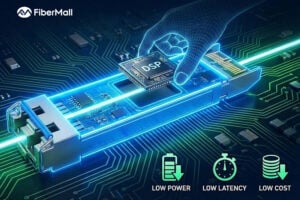
Why Is It Necessary to Remove the DSP Chip in LPO Optical Module Links?
If you follow the optical module industry, you will often hear the phrase “LPO needs to remove the DSP chip.” Why is this? To answer this question, we first need to clarify two core concepts: what LPO is and the role of DSP in optical modules. This will explain why

Global 400G Ethernet Switch Market and Technical Architecture In-depth Research Report: AI-Driven Network Restructuring and Ecosystem Evolution
Executive Summary Driven by the explosive growth of the digital economy and Artificial Intelligence (AI) technologies, global data center network infrastructure is at a critical historical node of migration from 100G to 400G/800G. As Large Language Model (LLM) parameters break through the trillion level and demands for High-Performance Computing (HPC)
Related posts:
- Is UFM as Functional as Managed Switch and Unmanaged Switch?
- What FEC is Required When the 400G-BIDI is Configured for Each of the Three Operating Modes?
- What Type of Optical Connectors do the 400G-FR4/LR4, 400G-DR4/XDR4/PLR4, 400G-BIDI (400G SRBD), 400G-SR8 and 400G-2FR4 Transceivers Use?
- Both the 100G-SWDM4 and the 100G-SRBD Transceivers Support 100G over Duplex Multi-Mode Fiber. When Should Each Transceiver Be Used?
